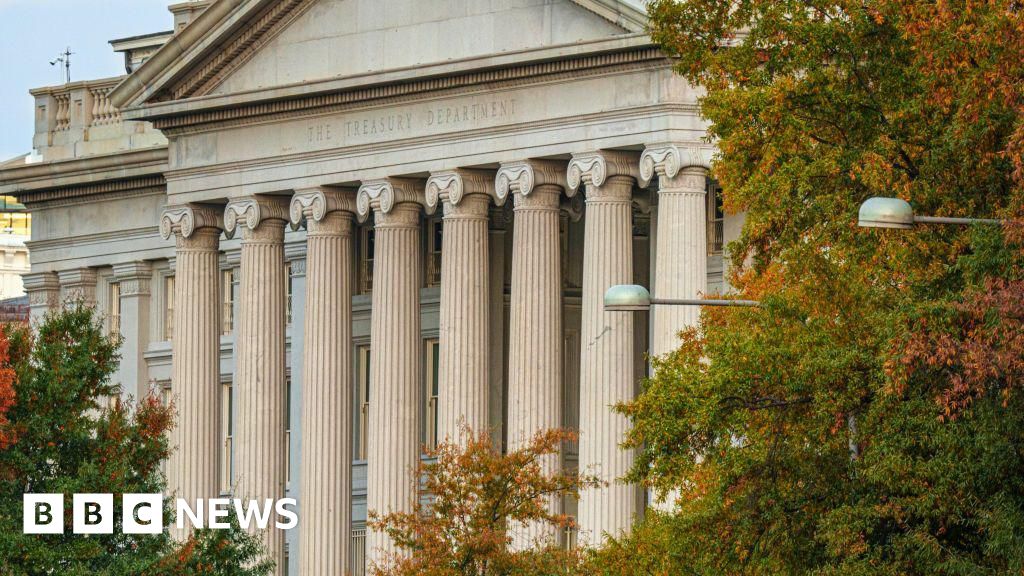CNA Staff, Sep 21, 2024 / 09:00 am
Pro-life advocates have seen significant gains in rolling back the death penalty in states around the country in recent years. A smaller but still determined band of activists and policymakers, meanwhile, is hoping for a similar victory at the federal level.
The vast majority of executions in the United States are carried out at the state level. Since the U.S. Supreme Court’s 1976 Gregg v. Georgia decision affirming the legality of the death penalty, just 16 convicts have been put to death by the federal government, compared with nearly 1,600 by state governments.
Since the turn of the century, the death penalty has become increasingly unpopular in the United States. A majority of states are currently not executing prisoners. Twenty-three states and the District of Columbia have outlawed the death penalty, while an additional six states have executive holds on capital punishment.
Federal executions are relatively rare affairs, although 13 inmates were executed in the last six months of President Donald Trump’s first term.
Among them was Lisa Montgomery, who murdered Bobbie Jo Stinnett in Missouri in 2004 in order to steal her unborn baby. Montgomery was the first woman to be executed by the federal government in nearly 70 years.
Advocates had argued prior to her execution that she had endured a “lifetime of horrific torture” that had given her permanent brain damage and “[disrupted] her ability to function normally.”
President Joe Biden campaigned in 2020 to abolish the federal death penalty; the Biden administration issued a moratorium on executions after Biden took office. But a total of 40 federal inmates remain on death row.
A group of Democratic senators introduced the Federal Death Penalty Prohibition Act in 2021 in a bid to abolish federal capital punishment. That bill died in committee. The senators reintroduced the bill during the current session of Congress.
Virginia Sen. Tim Kaine, who co-sponsored both bills, told CNA that the measure faces an uphill battle in the Senate, where Democrats hold a very slim majority.
For most proposals in the Senate, Kaine noted, the rules stipulate a 60-vote threshold. “We’re not yet there,” he said of the death penalty measure. “We just have to keep kind of working at it and finding Republican colleagues who are willing to join us.”
He pointed to the successful bipartisan effort to abolish the death penalty in Virginia in 2021 under Democratic Gov. Ralph Northam. “I’m very pleased with what Virginia was able to do under Gov. Northam, and not just with the Democratic vote,” he said. “There were Republicans who played an important role in that effort.”
Kaine is Catholic and said the Church’s opposition to the death penalty is an “important component” in his opposition to capital punishment.
The Church’s stance against capital punishment was strengthened several years ago with an addition to the Catechism of the Catholic Church stipulating that the death penalty is “inadmissible because it is an attack on the inviolability and dignity of the person.” The Church “works with determination for its abolition worldwide,” the catechism states.
“Another is the reality that humans make mistakes,” Kaine argued. “If we put someone in jail or prison by mistake — and we occasionally do — there’s some ability to correct the mistake. But history has been filled with instances of executions later found to be the wrong person.”
“It could [also] be somebody who did commit a crime but had a significant mental deficiency where putting them to death wasn’t the just outcome,” he argued.
“The human capacity for error has always been one of the reasons I oppose the death penalty.”
(Story continues below)
Subscribe to our daily newsletter
‘We must mobilize our Catholic community’
The present federal abolition bill is currently at the Senate Judiciary Committee and hasn’t shown signs of moving. Kaine, who is not a member of the Judiciary Committee, told CNA he wasn’t sure if the measure would be voted on anytime soon.
Krisanne Vaillancourt Murphy, the executive director of the anti-death-penalty Catholic Mobilizing Network (CMN), said the group is maintaining “a posture of persistent hope, prayer, and action as we work to abolish the scourge of capital punishment.”
Murphy noted that although the federal government under the Biden administration put a moratorium on federal executions, “the Justice Department [still] pursued death sentences for certain cases.”
“There is still time for President Biden to carry out his campaign promise,” she said. “As he approaches the end of his presidency and the beginning of the Jubilee Year of his Catholic faith, we believe there are opportunities for him to take bold action at the federal level, like commuting the federal death row, that can herald the beginning of the end of capital punishment.”
CMN says it was given “renewed resolve” after the flurry of executions in the Trump administration’s final months, which constituted “more federal executions than any president [had performed] in 120 years,” Murphy said.
The group “grew more acutely aware that not only must we mobilize our Catholic community, we also must partner with diverse groups to accomplish our mission.”
The federal death penalty could be scrapped by an abolition bill, Murphy noted. “That would require the vote of 60 senators, which in turn would require a large tilt in the senatorial balance,” she said. “That would likely take a few years.”
Whether or not it will come to pass is uncertain on this side of the November elections. Several forecasts have Republicans taking the U.S. Senate and keeping the U.S. House. If Trump were to win in November, that would likely scuttle efforts to abolish the federal death penalty via legislation for at least four years.
It’s unclear if a Kamala Harris presidency would advance those efforts, however. Harris herself has not signaled her feelings on the death penalty over the brief course of her campaign (there are “so many other burning issues that rest on this election,” Murphy noted).
Kaine told CNA that he had not spoken with the vice president on the issue, though he said he would “not be surprised if she continued the current Biden practice” of a capital punishment moratorium.
Notably, the 2024 Democratic National Committee platform dropped its opposition to the death penalty, the first time in years that the issue has been absent from the official party line.
Patrick Whelan, the president of the Boston-based Catholic Democrats political group, claimed that Harris herself is “strongly opposed to the death penalty.”
“I don’t know the inside baseball, but I suspect the platform committee concluded that they didn’t want to create a vulnerability in an election where Mr. Trump has tried to make violent immigrant crime a big campaign issue,” Whelan told CNA.
“I also wonder if the language in the 2020 platform wasn’t directly a product of President Biden’s Catholicism, and the Church’s unequivocal stance on the issue under Pope Francis,” he said.
Catholic Democrats, Whelan noted, “through our 20-year history has always been unequivocally opposed to the death penalty.”
The death penalty will likely remain a relatively ancillary issue to the vast majority of voters in the final weeks of the 2024 contest, with abortion, immigration, and the economy taking top spot on most polls.
Still, advocates will continue to press the issue. Kaine noted that in Virginia, Republicans from unlikely environs — such as the conservative southwestern portion of the state — joined with Democrats to help abolish it.
The coalition of lawmakers who ultimately scrapped the death penalty in Virginia “might not have been the ones everyone predicted,” Kaine said.
“That gives me hope at the federal level,” he said.
 (1).png)
 3 months ago
11
3 months ago
11














